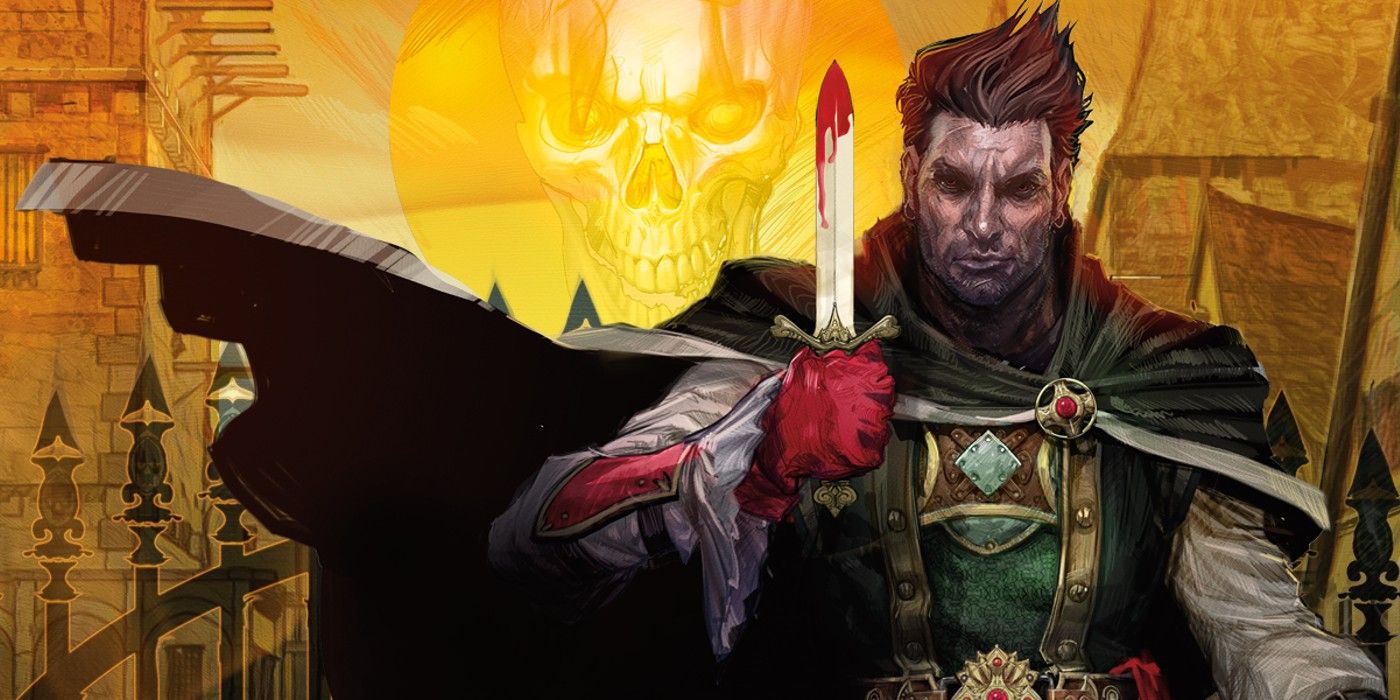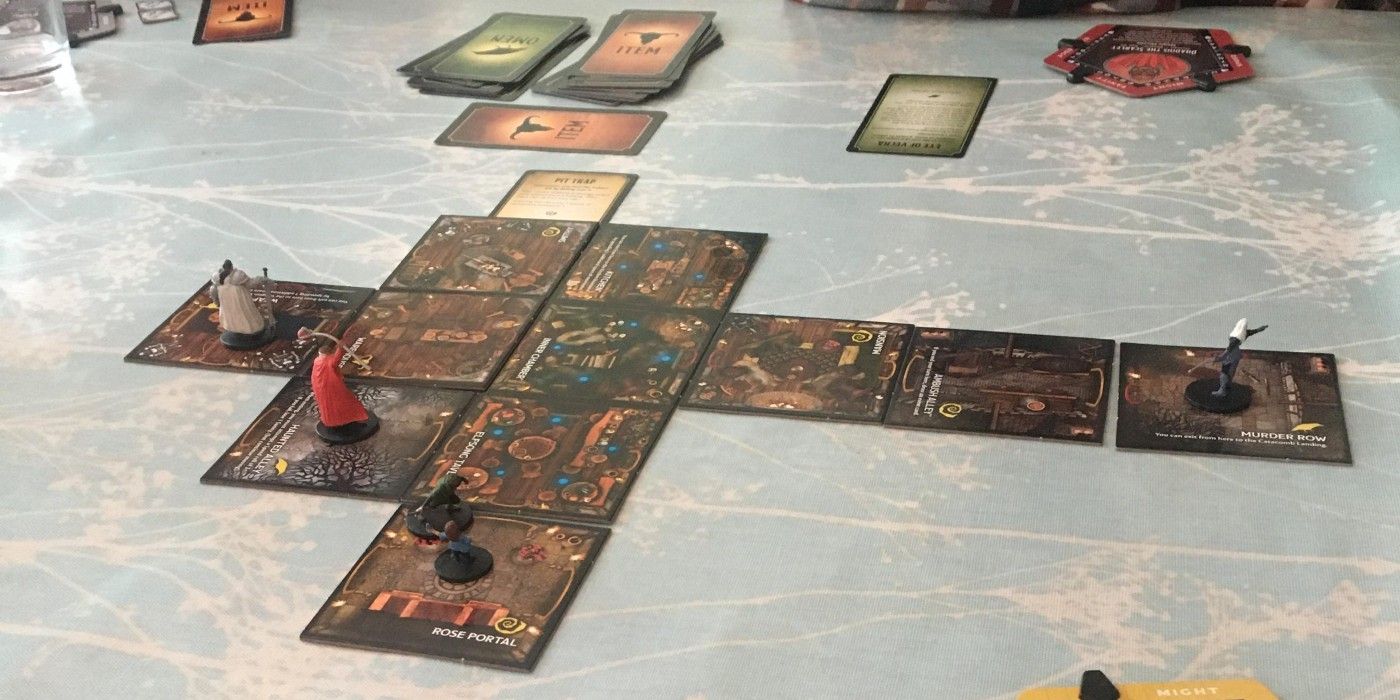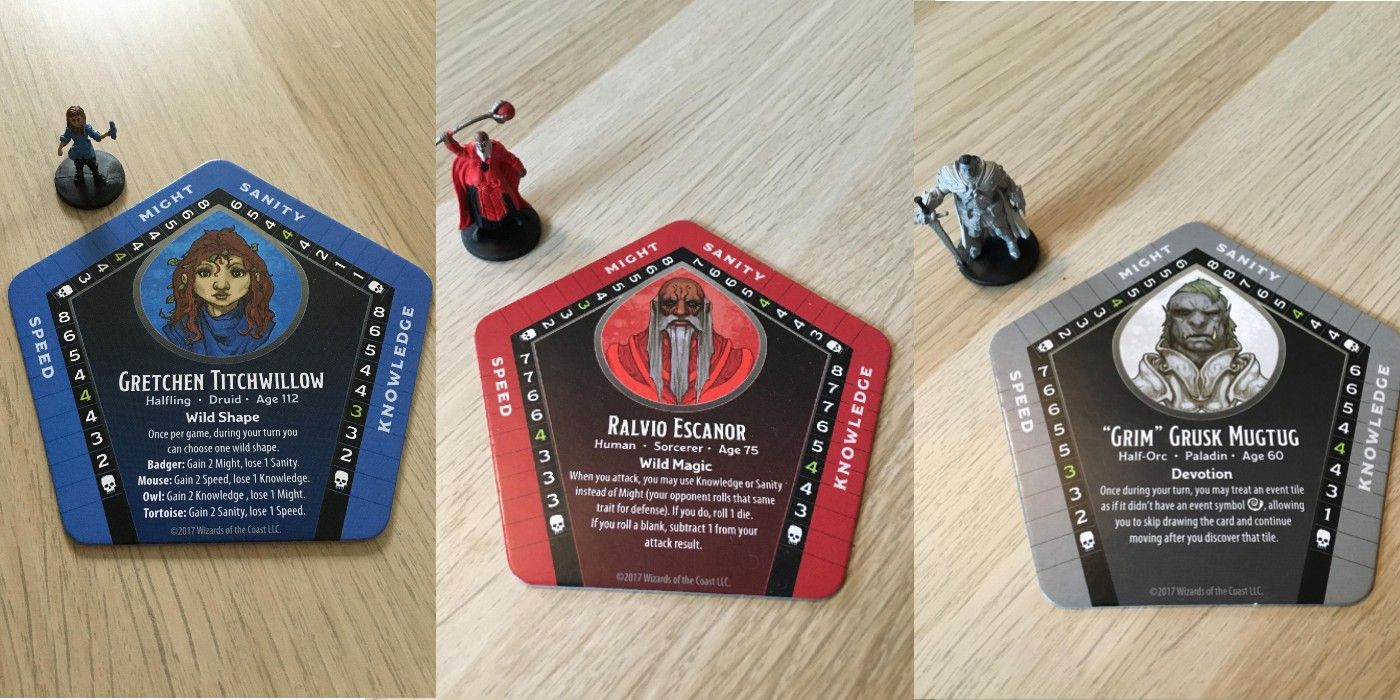Dungeons & Dragons has ruled the fantasy RPG tabletop gaming space for years, spawning many versions and inspiring other games. It's also lent itself to the video game world, most noticeably being the base for the Baldur's Gate franchise. While fans wait for Baldur's Gate 3 to leave early access, there are many other ways to get their D&D fix.
Betrayal at House on the Hill is a hugely popular cooperative horror board game where players start by teaming up to explore a haunted house before the real objective (one of 50 "haunts") becomes apparent. Betrayal at Baldur's Gate is a standalone version of this that replaces the horror and haunted house of the original with the fantasy streets, buildings, and catacombs of anD&D's iconic city. The game's cooperative, fantasy, and RPG elements will all appeal to D&D fans who are looking for a shorter, yet still wildly fun, tabletop experience.
Betrayal's cooperative play is intriguing and certainly parallels the D&D experience. The real twist comes when the "haunt" is triggered, revealing the traitor, who will then be given their own set of rules to fight against the rest of the party. Like in D&D, players control their own characters, ultimately making their own decisions, but they will have to work together to overcome the shadow of Bhaal and defeat the traitor. Although there are far stricter rules in Betrayal compared to D&D, players can still have fun experimenting with different tactics and approaches to each scenario.
Of course, being based on D&D itself, Betrayal at Baldur's Gate naturally includes many of the same classic fantasy references. For example, iconic enemies such as the psychic mind flayers can make an appearance, alongside more regular monsters such as trolls and dragons. Popular D&D items are also available such as the Eye of Vecna, the Iron Flask of Tuerney, and a Ten Foot Pole. These references may fit naturally into the game, but they'll be especially sure to put a smile on the face of any D&D fan.
The adventurers, too, contain nods to the game's D&D roots. New to Betrayal at Baldur's Gate, each character has a unique adventurer power that's related to their race and class. For example, Gretchen Tictchwillow, the halfling Druid, can use the D&D power Wild Shape to shapeshift and adapt her stats. As expected, others, such as Clerics, who can heal others, and Wizards, who can use magic, also line up with their traditional D&D abilities. These powers make each character useful in their own way and are a nice addition to the original game.
Betrayal's RPG elements go beyond class abilities. Each adventurer has their own set of stats and attributes. Rther than being replaced with D&D-specific stats, the characters in Betrayal at Baldur's Gate keep the original game's attributes: Speed, Might, Sanity, and Intelligence. Despite this minor missed opportunity, this aspect of the game provides plenty of entertainment and, as in D&D, is the basis for each character's ability to complete relevant tasks via successful dice rolls. These stats can increase or decrease throughout the game as players encounter enemies, find items, and complete events. A balanced party will be essential to success, as the adventurers never know what they might be facing next.
Betrayal at Baldur's Gate improves on Betrayal at House on the Hill by adding unique adventurer powers and rebalancing the "haunt" rolls needed to trigger the "haunt." Its new events, omens, items, tiles, and "haunt" scenarios are also a breath of fresh air for those who have experienced everything the original game has to offer. As a result, it's a game well worth playing for any board game fan. However, D&D enthusiasts especially, will enjoy its gripping cooperative, fantasy and RPG elements, which all pay homage to the iconic tabletop giant.



